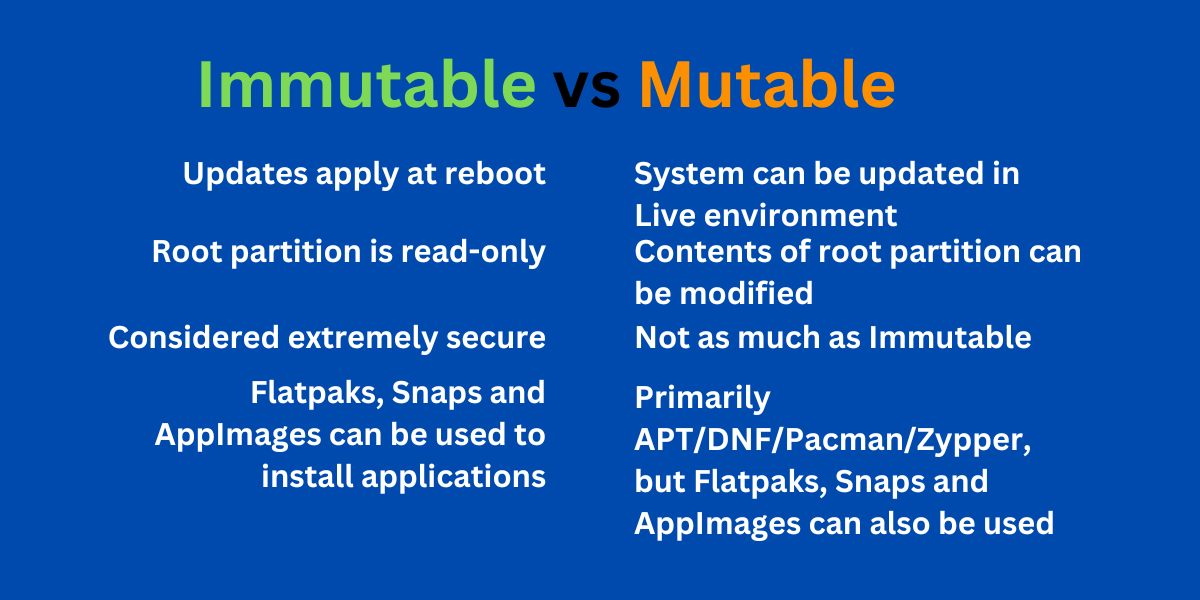this post was submitted on 13 Jan 2025
364 points (94.4% liked)
Linux
58145 readers
343 users here now
From Wikipedia, the free encyclopedia
Linux is a family of open source Unix-like operating systems based on the Linux kernel, an operating system kernel first released on September 17, 1991 by Linus Torvalds. Linux is typically packaged in a Linux distribution (or distro for short).
Distributions include the Linux kernel and supporting system software and libraries, many of which are provided by the GNU Project. Many Linux distributions use the word "Linux" in their name, but the Free Software Foundation uses the name GNU/Linux to emphasize the importance of GNU software, causing some controversy.
Rules
- Posts must be relevant to operating systems running the Linux kernel. GNU/Linux or otherwise.
- No misinformation
- No NSFW content
- No hate speech, bigotry, etc
Related Communities
Community icon by Alpár-Etele Méder, licensed under CC BY 3.0
founded 6 years ago
MODERATORS
you are viewing a single comment's thread
view the rest of the comments
view the rest of the comments

TL;DR: My desktop PC uses EndeavourOS and the only immutable experience I have is SteamOS 3. I can't say one approach is better than the other, but I like having the newest software and packages in my system. And that's best provided with a rolling release. I also think that sandbox systems like Flatpak and the several alternative installation methods besides the system package manager is an added complexity for a new user in Linux.
I don't mind using an immutable system (BTW another term that describes this kind of system is Atomic, which comes from Fedora), as long as it is designed around it and works well. The only immutable system I use is on my Steam Deck with the pre-installed SteamOS 3. My generic desktop personal computer is using an Archlinux derivative EndeavourOS with a rolling-release, where I have much greater control over the system.
Both systems have their strengths. I don't think that my mutable and always up to date system is breaking more often than the other system. The best part of it is, its always up to date and I get the newest applications. I try to not use much Flatpaks or AppImages (but do for certain apps, where I have no other choice for ease of use). And an immutable system naturally basically asks me to use Flatpaks and other user space package formats that is not handled by the distribution itself.
Even though I have some thoughts on it, I am not excluding one approach. Many say that immutable distributions are good for new users to Linux. I think this adds some complexity and problems, because they need to use sandbox systems like Flatpak. And that's if they know that they are using Flatpak, because sometimes the app distribution gives options like AppImage and custom installer scripts as well. This is all confusing for someone who just starts with Linux. On top of it, the sandbox of Flatpak requires some additional setup and configuration for some apps, to access certain hardware or filesystems in example.
All in all, I tend to like the traditional "mutable" distribution system as a rolling release model the most. But I'm an not excluding any other and would use a good "immutable" one; I just didn't try any other than the one in my Steam Deck.